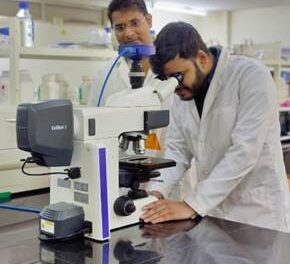A comprehensive systematic review of scientific data from 2020 to 2024 reveals significant differences in weight-loss outcomes among various methods, with bariatric surgery emerging as the most effective and enduring solution. These findings were presented at the 2024 Annual Scientific Meeting of the American Society for Metabolic and Bariatric Surgery (ASMBS).
The study analyzed thousands of patients across multiple clinical studies and randomized clinical trials, comparing the effectiveness of lifestyle changes, GLP-1 receptor agonists, and bariatric surgery.
Key Findings
Lifestyle Interventions:
- Average weight loss: 7.4%
- Weight regain: Most weight regained within 4.1 years
GLP-1 Receptor Agonists:
- Semaglutide (5 months of weekly injections): 10.6% weight loss
- Tirzepatide (9 months of weekly injections): 21.1% weight loss
- Weight regain: About half of the lost weight returned within a year after stopping treatment
- Continued treatment: Tirzepatide plateaued at 22.5% weight loss at 17-18 months; semaglutide plateaued at 14.9%
Metabolic and Bariatric Surgery:
- Gastric bypass: 31.9% weight loss one year post-surgery, maintaining approximately 25% weight loss for up to 10 years
- Sleeve gastrectomy: 29.5% weight loss one year post-surgery, maintaining approximately 25% weight loss for up to 10 years
Expert Insights
“Metabolic and bariatric surgery remains the most effective and durable treatment for severe obesity. Unfortunately, it also remains among the most underutilized,” said Dr. Marina Kurian, study co-author and bariatric surgeon at NYU Langone Health. She emphasized the need for surgery to be considered earlier in the treatment process, rather than as a last resort.
Dr. Ann Rogers, ASMBS President-elect and Professor of Surgery at Penn State College of Medicine, highlighted the need for greater utilization of bariatric surgery. “For many people, the risk of death from obesity, diabetes, and heart disease exceeds the risks of surgery,” she said.
Utilization and Obesity Statistics
Despite its effectiveness, metabolic and bariatric surgery remains underutilized. In 2022, nearly 280,000 such procedures were performed in the U.S., representing only about 1% of those who meet the eligibility requirements based on BMI. The CDC reports that obesity affects 42.4% of Americans, contributing to a range of health issues, including weakened immune systems, chronic inflammation, cardiovascular disease, stroke, type 2 diabetes, and certain cancers.
Study Methodology
The systematic review encompassed studies examining weight loss through lifestyle modifications, GLP-1s (semaglutide or tirzepatide), and metabolic and bariatric surgery (gastric bypass and sleeve gastrectomy). The GLP-1 data included four randomized clinical trials conducted between 2021 and 2024, while the lifestyle modification conclusions were based on a review of eight studies. The surgery data were drawn from a review of 35 studies, including two randomized clinical trials, covering the weight-loss results of approximately 20,000 patients.
Conclusion
While new drug treatments like GLP-1s show promise, metabolic and bariatric surgery remains the most effective tool for long-term weight loss and should be more widely utilized in the fight against obesity.
Reference: “Effectiveness and Durability of Common Weight Loss Methods” by Megan E. Jenkins, Juliane Hafermann, Christine Fielding, Gerhard Prager, and Marina Kurian, 11 June 2024, ASMBS 2024 Annual Scientific Meeting.










